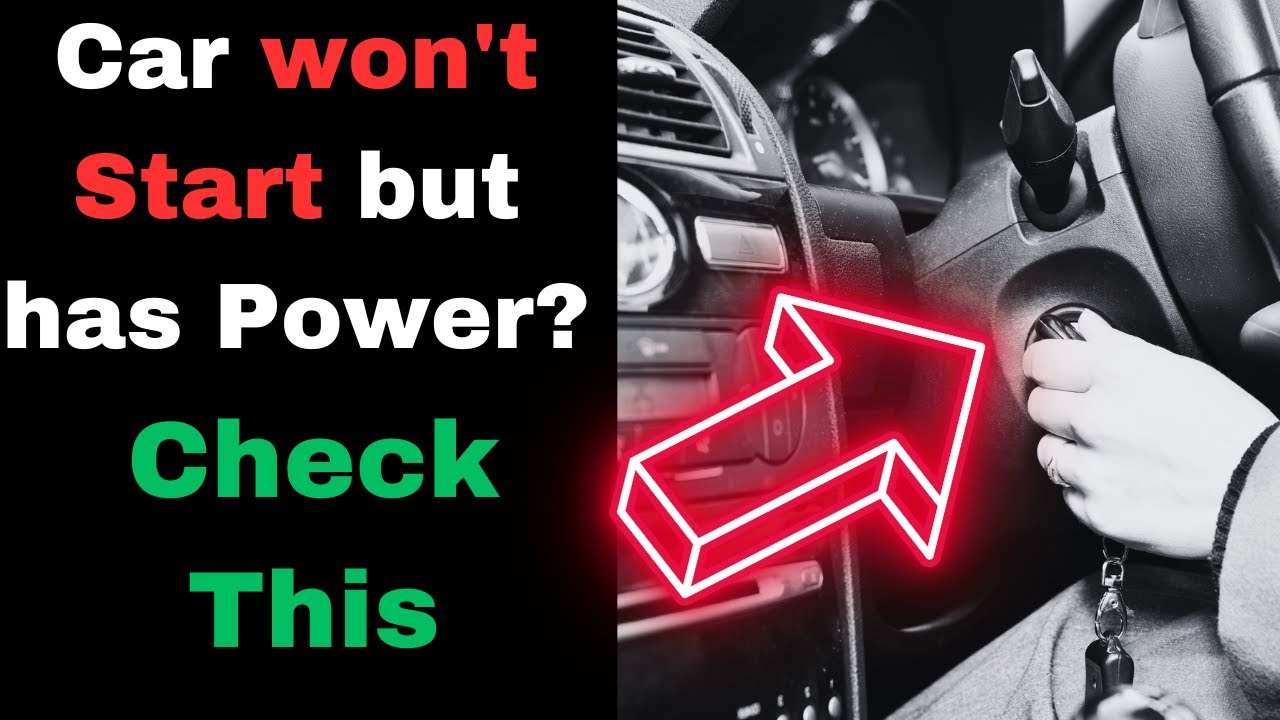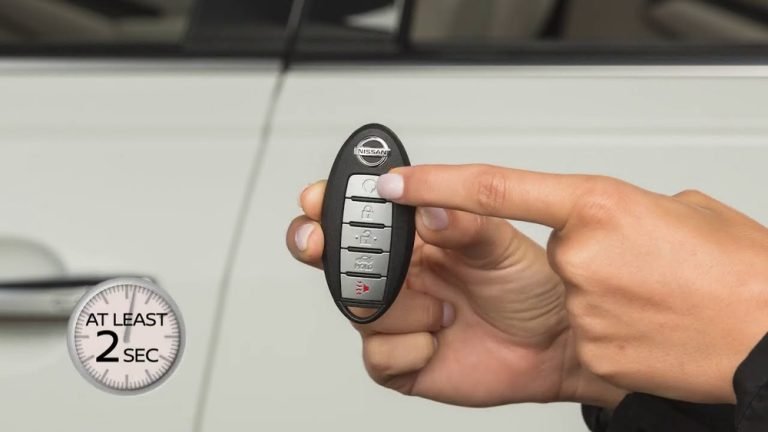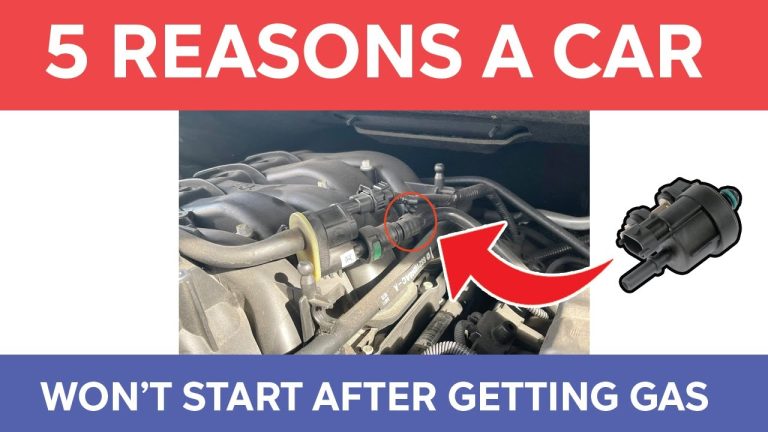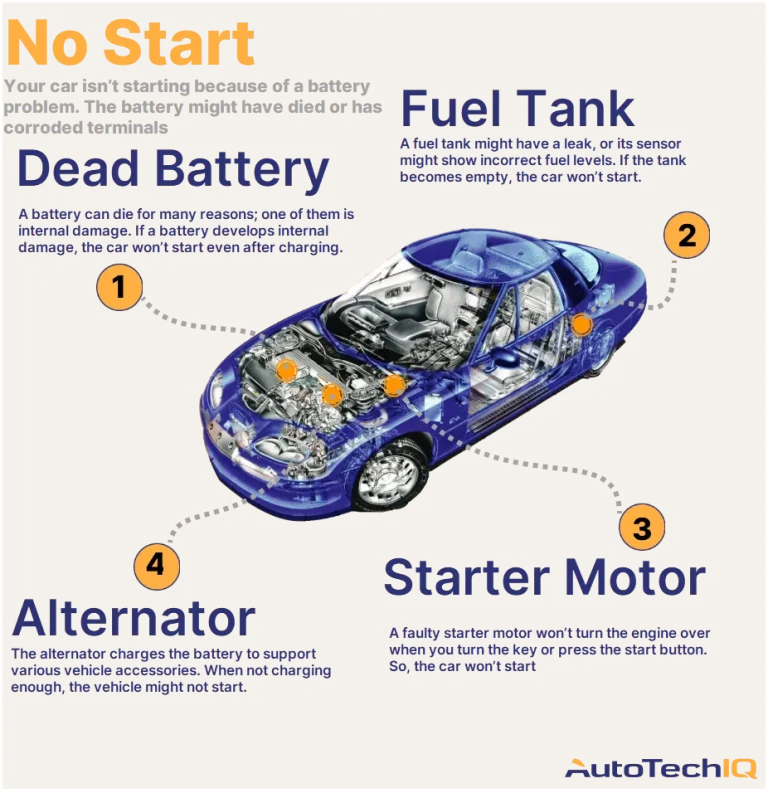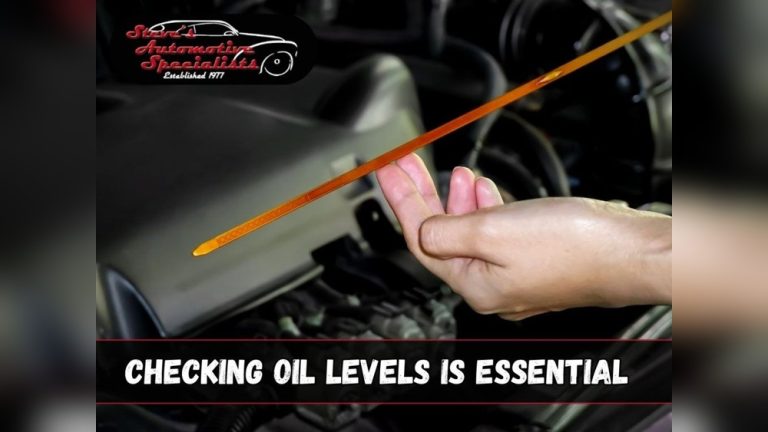Car Won’t Turn Over But Has Power: Troubleshooting Tips
If your car won’t turn over but has power, the issue is likely with the starter, ignition switch, or a related component. The battery is working, but the engine won’t crank. Check the starter relay, fuses, or neutral safety switch. A mechanic can diagnose the exact cause.
Frustration builds as you wonder why your car has power but won’t start. You’re not alone; this problem is surprisingly common. Understanding the reasons behind it can save you time, money, and a lot of headaches. You’ll discover the most common culprits and simple fixes that could get your car purring again.
Read on to uncover solutions that put you back in control, ensuring you’re never left stranded again.

Credit: www.youtube.com
Car Won’t Turn Over But Has Power
If your car won’t turn over but has power, it usually means the battery is working, but the engine isn’t cranking. Common causes include a faulty starter, a bad ignition switch, a blown fuse, or a problem with the neutral safety switch or starter relay. It’s best to have the starter system checked by a mechanic.
Read more: Car Struggles to Start After Sitting: Quick Fixes
Battery Health Check
Experiencing a car that won’t start despite having power often points to battery issues. Performing a battery health check can help identify if the battery is weak or failing. This simple inspection ensures your vehicle remains reliable.
When your car won’t turn over but has power, the culprit is often the battery. A battery health check can save you time and frustration by pinpointing the issue. Without it, you might find yourself stranded at the most inconvenient times. Have you ever been late for an important meeting because your car just wouldn’t start? That panic could be avoided by a simple battery check.
What Is A Battery Health Check?
A battery health check involves testing the battery’s voltage and its ability to hold a charge. You can perform this with a multimeter or visit a local auto shop. Knowing your battery’s condition helps you decide if a replacement is needed.
Signs Of A Weak Battery
Is your car making clicking sounds when you turn the key? This can be a sign of a weak battery. Other symptoms include dim headlights or needing to jumpstart your car often. These are all indicators that your battery might be on its last legs.
Tools You Need
To check your battery, you’ll need a multimeter. This handy tool measures electrical voltage. If you don’t own one, they are affordable and available at most hardware stores. Having a multimeter around can save you from future headaches.
How To Test Your Battery
First, ensure your car is off. Then, connect the multimeter’s red probe to the battery’s positive terminal and the black probe to the negative terminal. A healthy battery should read around 12.6 volts. If the reading is significantly lower, it’s time to consider a replacement.
When To Consult A Professional
If your battery check results are inconclusive, a professional opinion can provide clarity. Mechanics have specialized tools and expertise to diagnose complex issues. Sometimes, the problem isn’t the battery but something else in the electrical system.
Regular battery checks can prevent unexpected problems. Why risk being late or stranded when a simple test can offer peace of mind? Keep your multimeter handy, and make battery health checks a part of your routine car maintenance.
Read more: Car Struggles to Start But Battery is Fine: Hidden Culprits
Starter Motor Issues
Experiencing power but a car that won’t start often signals starter motor problems. This essential component might be failing, preventing engine turnover despite sufficient battery power. Regular maintenance can help avoid these frustrating situations, ensuring smooth starts and reliable performance every time.
Starter motor issues can be frustrating, especially when your car won’t turn over despite having power. The starter motor plays a vital role in cranking your engine, and any problem with it can leave you stranded. Understanding the signs of starter motor trouble can save you time and money.
What Is A Starter Motor?
The starter motor is a small electric motor connected to the car’s battery. It turns the engine over, allowing it to start. Without it, your engine wouldn’t come to life.
Signs Of A Faulty Starter Motor
Is your car making a clicking noise when you turn the key? This could indicate a starter motor issue. Another sign is when your engine doesn’t crank, but all other electrical components work.
Causes Of Starter Motor Failure
Wear and tear is a common culprit. Over time, the components of the starter can degrade. Corroded connections and a failing solenoid also contribute to starter problems.
Practical Solutions To Starter Motor Problems
Check the connections first. Ensure they are clean and tight. If the problem persists, consider testing the starter motor or consulting a professional.
Personal Experience: A Lesson Learned
Last summer, my car wouldn’t start, but the radio and lights worked perfectly. After some checks, I discovered the starter motor was worn out. Replacing it solved the issue, reminding me of the importance of regular maintenance.
When To Seek Professional Help
If you’re unsure about diagnosing or fixing the starter motor, it’s wise to consult a mechanic. They can accurately identify the problem and recommend the best course of action.
Have you ever faced starter motor issues? What did you do to resolve them? Understanding these components can help you make informed decisions and avoid unexpected breakdowns.
Ignition Switch Problems
Facing an issue with a car that won’t start is frustrating. The engine not turning over, despite having power, often points to ignition switch problems. This crucial component is responsible for sending power to the engine’s start system. A malfunction here can disrupt the entire process.
What Is An Ignition Switch?
The ignition switch is a key part of your car’s electrical system. It activates the engine and powers various accessories. When you turn the key, the switch closes the circuit. This action sends power to the starter motor and the ignition system.
Signs Of A Faulty Ignition Switch
One clear sign is the dashboard lights not coming on. If the car stalls while driving, it may indicate a faulty switch. Listen for unusual sounds when turning the key. A clicking noise can point to ignition issues.
Causes Of Ignition Switch Failure
Wear and tear is a common cause. Over time, the internal contacts can wear out. Dust and debris can also affect its function. Electrical faults may arise from faulty wiring.
Testing The Ignition Switch
Testing can be done using a multimeter. Check the voltage readings while turning the key. Ensure the battery and starter are working properly. Consult a professional if unsure.
Repairing Or Replacing The Ignition Switch
Minor issues might require simple cleaning or adjustments. In severe cases, replacement may be necessary. Always follow a professional guide. Replacement requires disassembling parts of the steering column.
Preventing Ignition Switch Problems
Regular maintenance can prevent many issues. Keep the ignition area clean from dust and debris. Avoid heavy keychains that put strain on the switch. Regularly check the electrical system for faults.
Fuel System Examination
Experiencing a car that won’t start but still has power can be frustrating. One potential culprit is the fuel system. The fuel system plays a crucial role in your car’s operation. Understanding how to examine it can save you time and money.
Check The Fuel Pump
The fuel pump sends gas from the tank to the engine. Listen for a humming sound when you turn the key. No sound might indicate a faulty pump.
Inspect Fuel Filters
Fuel filters keep dirt from reaching the engine. Clogged filters block fuel flow, preventing the car from starting. Replace dirty filters for smooth fuel delivery.
Examine Fuel Lines
Fuel lines carry fuel throughout the vehicle. Leaks or blockages in these lines can disrupt fuel supply. Check for wet spots under the car or fuel odor.
Evaluate The Fuel Injectors
Fuel injectors spray fuel into the engine’s cylinders. Dirty or clogged injectors limit fuel delivery. Clean or replace injectors to ensure efficient fuel flow.
Test Fuel Pressure
Low fuel pressure can prevent your car from starting. Use a gauge to measure fuel pressure. Compare readings to your vehicle’s manual specifications.
Electrical Connections
Car not starting despite having power often indicates faulty electrical connections. Check the battery terminals for corrosion. Inspect the starter and ignition switch for issues.
When your car won’t turn over but has power, electrical connections could be the culprit. It’s not just about having a charged battery; the pathways that carry power are equally vital. These connections ensure that the energy reaches the right components to start your engine
Check The Battery Terminals
Start by inspecting the battery terminals. Are they clean and tightly connected? Corroded or loose terminals can disrupt the flow of electricity.
I’ve been there—standing in a parking lot, confused about why my car wouldn’t start. A simple tightening of the battery clamps brought my car back to life.
Don’t underestimate the impact of a snug connection.
Examine The Starter And Solenoid Connections
Next, look at the starter and solenoid connections. These are crucial for the engine to crank. Even with a charged battery, poor connections here can lead to issues.
Imagine you’re all set for a road trip, but your car refuses to start. It could be a loose wire on the starter.
Ensure these connections are secure and free from rust.
Inspect The Ground Wires
Ground wires are often overlooked, yet they play a key role. They complete the electrical circuit and provide stability.
Think about it: without a solid ground, electricity can’t circulate properly.
Check for frayed or disconnected ground wires, and fix them to avoid problems.
Evaluate The Ignition System Connections
The ignition system is the gateway to starting your car. Its connections must be intact for a successful start.
Picture yourself in the driveway, eager to leave for work, but the car won’t start. Faulty ignition wiring can be the reason.
Make sure all connections in this system are tight and clean.
Look For Hidden Wiring Issues
Sometimes, the problem lies deeper. Hidden wiring faults can disrupt the power flow.
Think of it like a puzzle; a single missing piece can throw everything off.
Trace the wires to find any hidden breaks or damage.
Could a simple check of your car’s electrical connections be the answer to your starting woes? Understanding and maintaining these connections can save you from unexpected car troubles. Next time your car refuses to start, consider checking these connections before calling for help.

Credit: www.wikihow.com

Credit: www.wikihow.com
Frequently Asked Questions
Why Won’t My Car Start But Has Power?
The starter motor might be faulty. Or there could be an issue with the ignition switch.
What Causes A Car To Not Crank?
A dead battery is a common cause. Also, check for a faulty starter or ignition switch.
Can A Bad Starter Cause Power Issues?
No, a bad starter doesn’t affect car power. It just prevents engine cranking.
How Do I Diagnose A Starter Problem?
Listen for clicking sounds. Check connections and battery voltage. Seek professional help if unsure.
Could A Blown Fuse Stop My Car From Starting?
Yes, a blown fuse can disrupt the ignition system. Check and replace if necessary.
Conclusion
Solving car issues can be frustrating. Stay calm and check the basics first. Look at the battery, starter, and connections. These often cause power issues. Seek help if you’re unsure. A mechanic can offer expertise and reassurance. Regular maintenance keeps your car running smoothly.
Remember, it’s important to address problems early. This prevents bigger issues later. Understanding your car helps in these situations. It’s an opportunity to learn more. Knowledge is power in car maintenance. Your car will thank you. Stay safe and drive with confidence.

